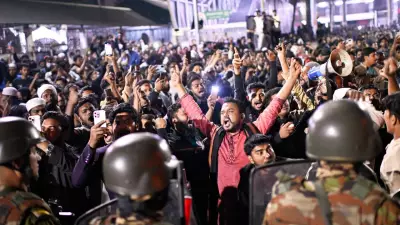
The interfaith marriage of Republican vice-presidential nominee J.D. Vance and his wife Usha Vance has become a focal point in America's ongoing conversation about religion and politics. As Christian nationalism experiences a notable uptick in American political discourse, their Hindu-Christian union is drawing increased scrutiny from various quarters.
The Vance Union: A Crossroads of Faith and Politics
J.D. Vance, a convert to Catholicism, and Usha Vance, who was raised in a Hindu family and now identifies as a Protestant Christian, represent what many see as America's religious diversity. However, their marriage is now being examined through the lens of rising Christian nationalist sentiment within conservative political circles.
Usha Vance, née Chilukuri, is an accomplished litigator who graduated from Yale Law School. Her journey from Hindu upbringing to Protestant faith mirrors the complex religious landscape of modern America. Meanwhile, J.D. Vance's transformation from "Hillbilly Elegy" author to Trump-aligned politician has been marked by his embrace of conservative Catholic values.
Christian Nationalism's Growing Influence
Recent years have witnessed a significant surge in Christian nationalist rhetoric within American politics. This movement, which seeks to align national identity with specific Christian values, has become increasingly vocal in its vision for America's future. The scrutiny of the Vance marriage comes at a time when questions about religious compatibility in leadership positions are being raised more frequently.
Experts note that Christian nationalism differs from traditional religious conservatism in its emphasis on establishing America as an explicitly Christian nation. This philosophy has gained substantial traction within certain segments of the Republican base, creating new challenges for politicians in interfaith relationships.
Political Implications and Public Reaction
The examination of the Vance marriage highlights broader questions about religious tolerance in American political life. While many Americans celebrate religious diversity, the rise of Christian nationalism has introduced new tensions into the political landscape.
Supporters of the couple argue that their marriage represents the best of American pluralism, while critics from various perspectives have raised questions about how their religious backgrounds might influence policy positions and political decision-making.
As the 2024 election season progresses, the conversation surrounding the Vances' marriage is likely to continue, reflecting America's ongoing negotiation between its founding principles of religious freedom and emerging movements that seek to redefine the nation's religious character.





